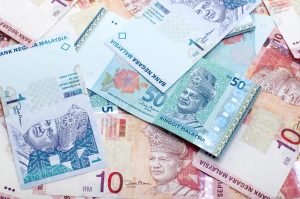The Malaysian central bank, Bank Negara Malaysia, is preparing to award up to five digital banking licenses to a pool of 29 applicants. (Vincent Fong at Fintech News Malaysia has a comprehensive breakdown of everyone in the running). The announcement is expected in March and will make Malaysia the second country in ASEAN to issue such licenses. In December 2020, the Monetary Authority of Singapore (MAS) selected four winning bids from a pool of 14 applicants. So, who will get the Malaysian licenses?
I have no special insight into the future or the central bank’s decision-making process. But we can view the field of candidates through an informed lens based on what MAS did in Singapore, and what the overall purpose of digital banking is. In Singapore, two full digital banking licenses were awarded to a home-grown tech start-up listed on the New York Stock Exchange (Sea) and a partnership between another big start-up and the largest telecommunications company in Singapore (Grab and Singtel).
The key for a digital bank is market penetration, since these new players will be competing against incumbents with large existing customer bases. A digital bank needs to have its own extensive customer base from the get-go, a deep pool of users who will view banking as an added service. The tie-up between Grab and Singtel makes perfect sense in that regard, as most people in Singapore use Singtel as their mobile provider and almost everyone already has Grab downloaded on their phone.
Singtel and Grab are teaming up again in pursuit of a Malaysian digital banking license. Although they are a leading contender, their success is not a foregone conclusion. Singtel does not have the same dominant market position in Malaysia as it does elsewhere. And it will be competing with Axiata, a major telecom holding company that is partnering with RBH, one of the largest banks in Malaysia. Axiata, through its e-wallet company Boost, already has 8.8 million users as of 2020 and its largest shareholder is sovereign wealth fund Khazanah Nasional Berhad. That makes it a pretty formidable competitor.
There are several other candidates being backed by similarly powerful political or commercial interests. Sunway, which has a controlling stake in Credit Bureau Malaysia, is partnering with Bangkok Bank and a fintech linked to China’s Tencent. BigPay, a local start-up, is vying for a license with the support of AirAsia, which has been looking to expand its footprint in the financial services industry lately. It has also been reported that Sea Group, fresh from securing its digital banking license in Singapore, has joined up with Malaysian conglomerate YTL Berhad.
These are all competitive bids, with leading e-commerce or tech companies joining up with big banks or conglomerates in a similar fashion to what we saw in Singapore. But there is an additional dimension to Malaysia’s digital banking ecosystem, which is providing financial services to the unbanked or those who might not otherwise have access. This is not really a consideration in Singapore, where according to the World Bank 98 percent of the population over the age of 15 had a bank account in 2017. According to the same survey, the figure was 85 percent in Malaysia.
This means that while we can expect some of the usual high-flying suspects like Sea, Axiata, or Grab to be awarded licenses, the central bank may also reserve a few licenses for organizations aimed at low-income or unbanked populations. There have been a few such entrants, such as the governments of Sarawak and Sabah, which have formed their own separate consortiums to compete for a license with the goal of expanding access to credit in rural areas. Another interesting pairing is Boustead Holdings and national cooperative Angkatan Koperasi Kebangsaan Malaysia Berhad. Their goal is also to provide access to financial services to cooperative members and other under-served members of the community. Boustead Holdings, which is majority owned by a pension fund for the armed forces, has had some recent financial struggles.
E-commerce and tech are booming in Southeast Asia, and only going to get bigger. We are now starting to see some of the underlying infrastructure that will support these rapidly growing digital marketplaces take shape. The way Bank Negara Malaysia ultimately decides these licenses will reveal a lot not only about which tech companies and conglomerates have the inside track in the digital banking race, but also about how this new digital ecosystem is being used to regulate the distribution of and access to financial services and credit.

































